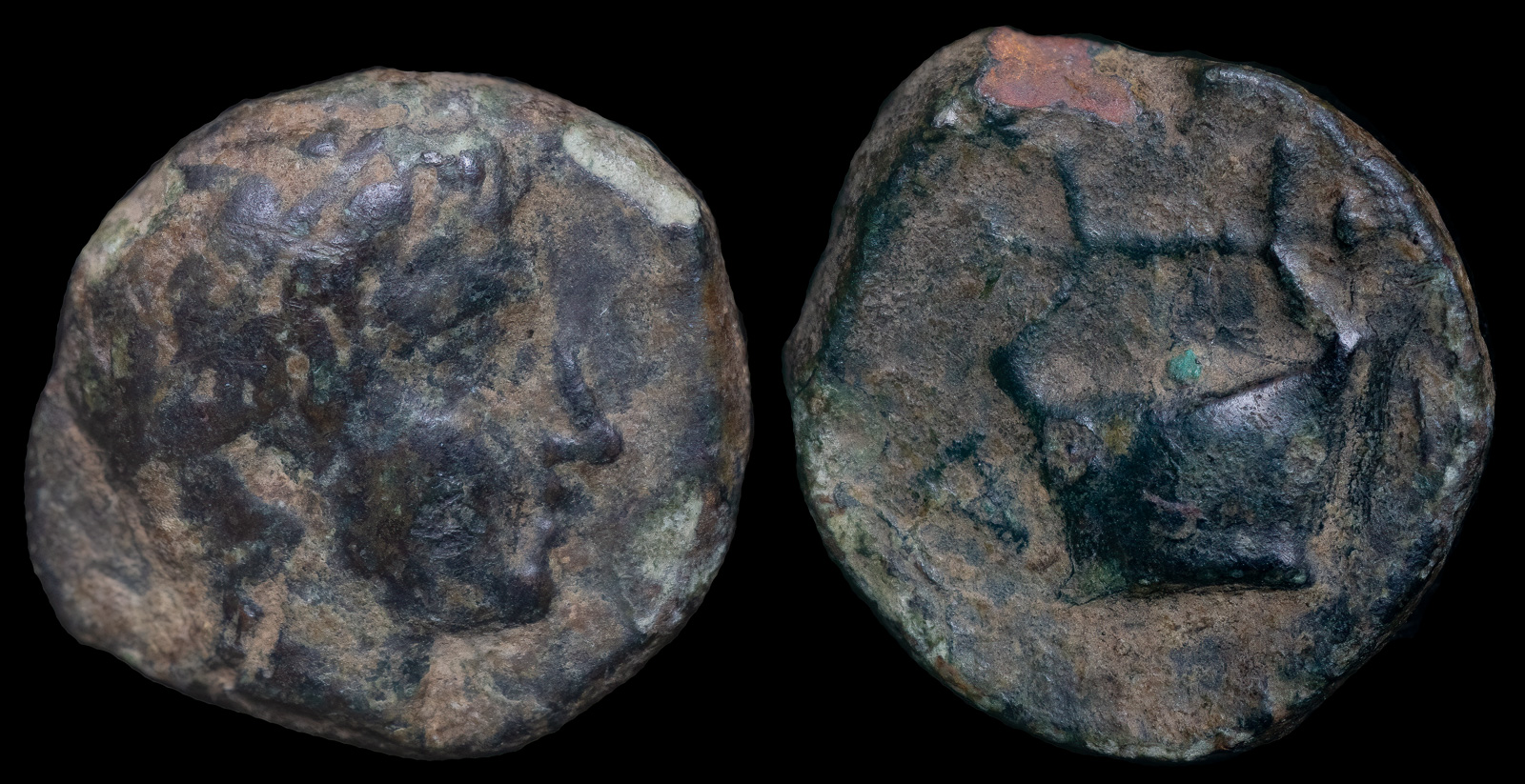
Cyclades, Delos
ca. 280 – 166 BCE
AE 9mm 0.56g
Laureate head of Apollo right /
Δ-Η, lyre.
cf. SNG Cop. 668
Delos is one of the top archeological sites in Greece. While Delphi was the center of the Oracle every Greek city and ruler sought for advice, Delos was the holiest place for all of them.
Archeological evidence suggests that the island was revered since at least 900 BCE. The major gods worshipped there were Dionysos and Leto. It was also famed as the birthplace of Apollo and Artemis (Leto was their mother).
In the ancient times, all bodies were removed from the island and buried elsewhere. Then a prohibition on dying there was enacted, though I wonder what the punishment was (death?). Even that wasn’t enough, as eventually all inhabitants were moved off the island.
Although the Delian League was really the puppet of Athens, the council met here – hence naming it after the island.
Ancient coinage from Delos, like that of pretty much all of the Cyclades, is quite rare. This one has Apollo on the obverse, who was born on the island. The six-string lyre also shown was a symbol of Apollo. I do wonder why Artemis had no mention, though. The coins were minted during a period when Delos had some autonomy in the 3rd century BCE and were to the Rhodian standard.
The ruins are still incredibly well preserved and are a popular tourist attraction from Mykonos. To this day, no one actually lives on the island other than a lot of cats. I had the opportunity to visit the ruins and I took the following photos.
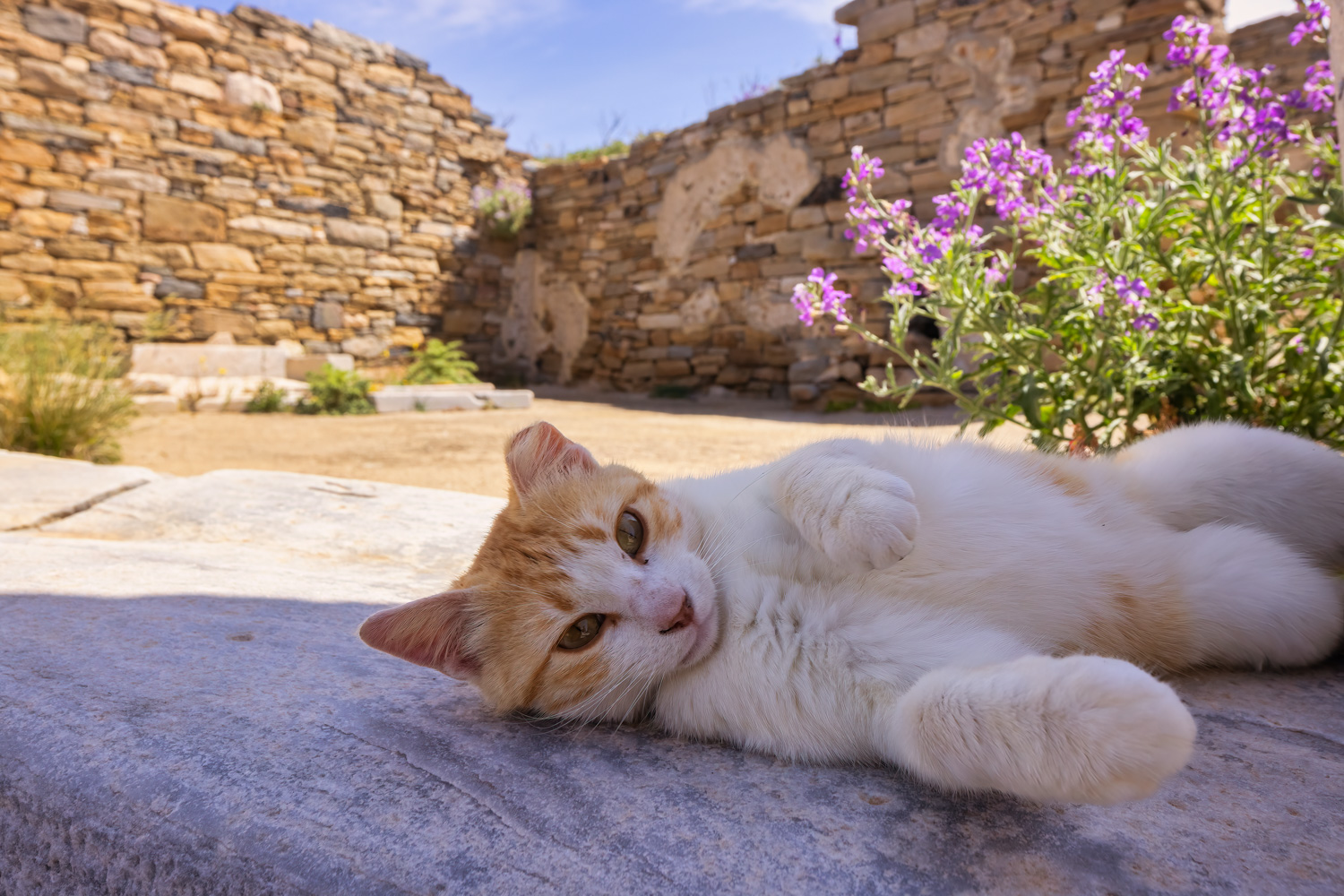
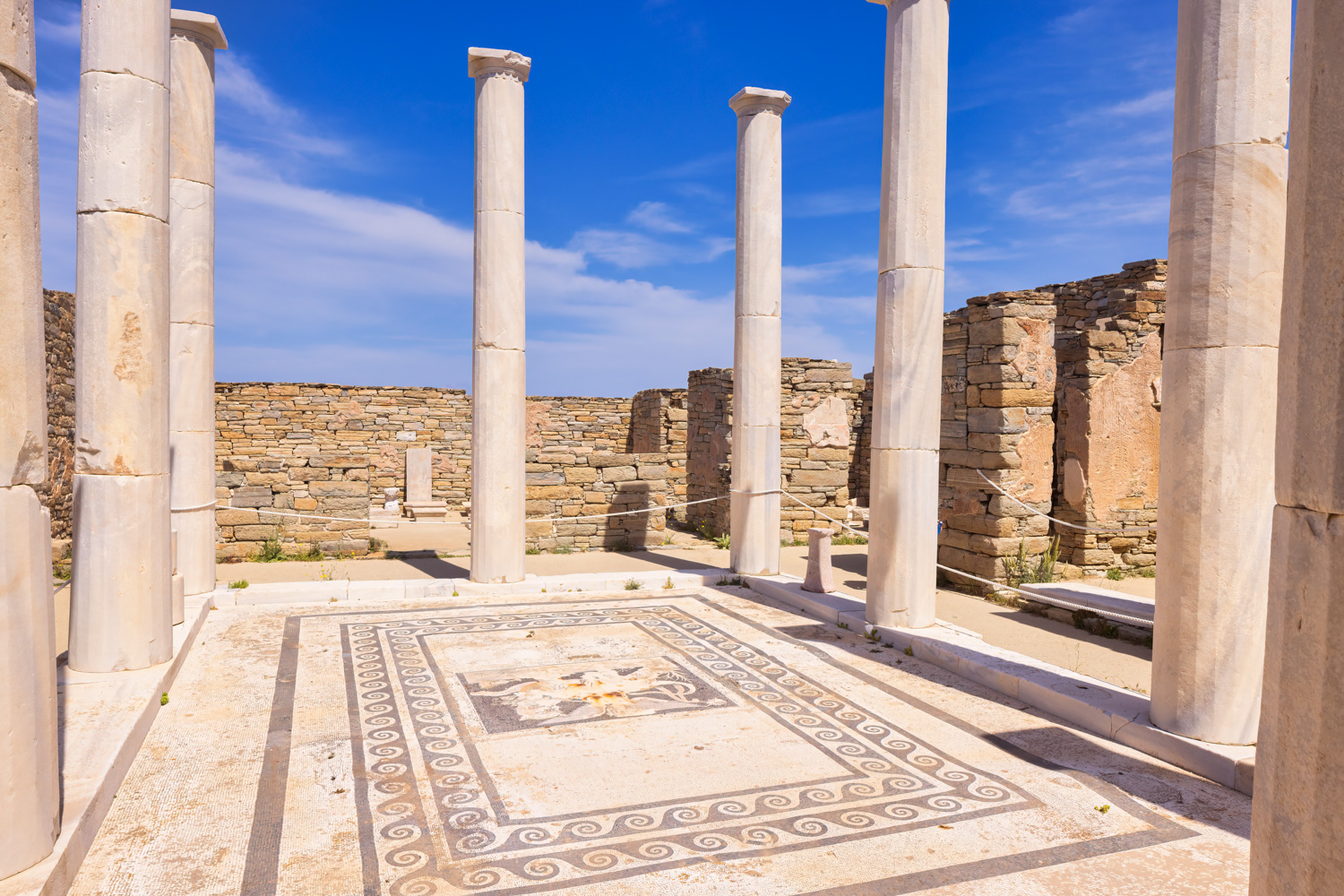
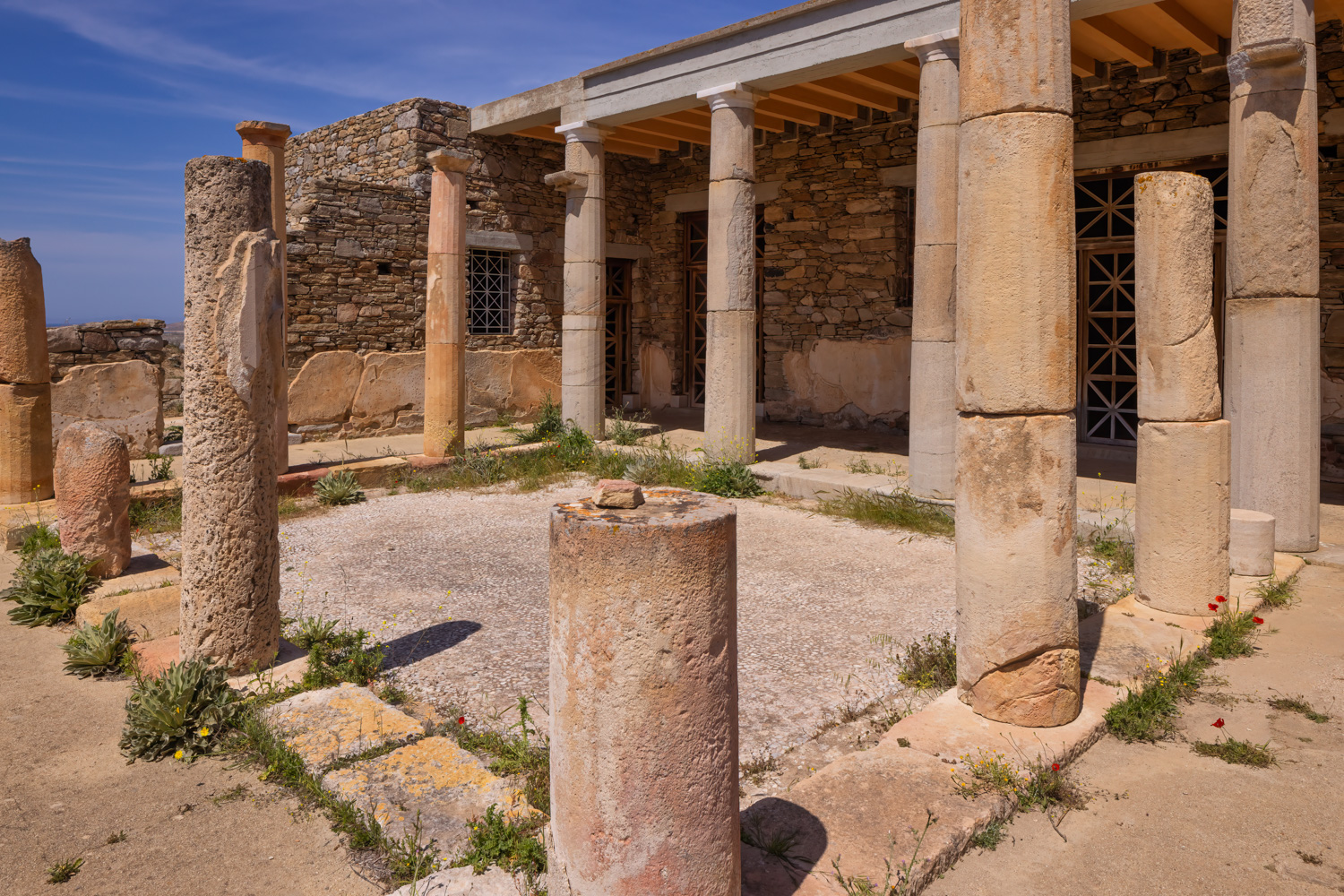
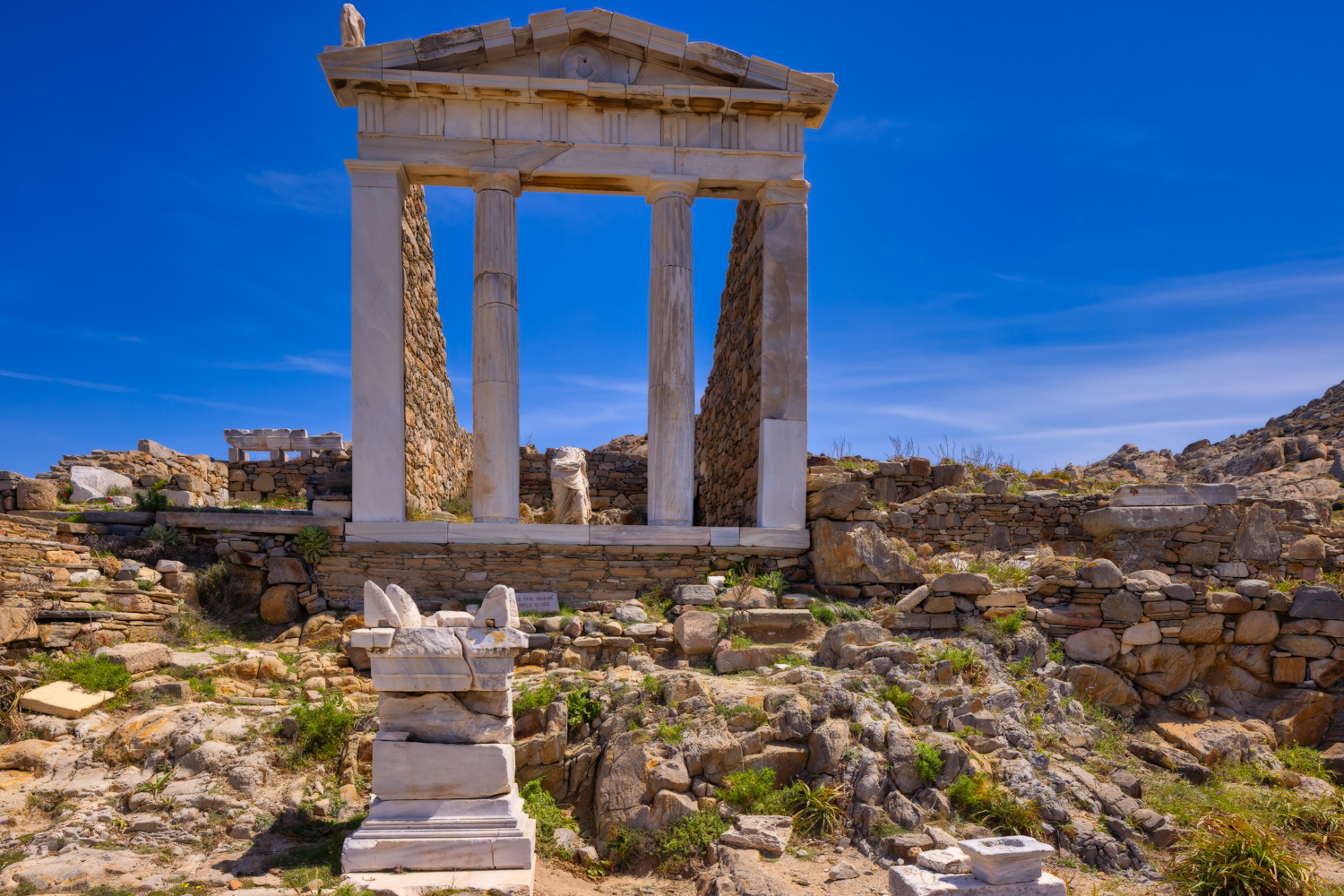
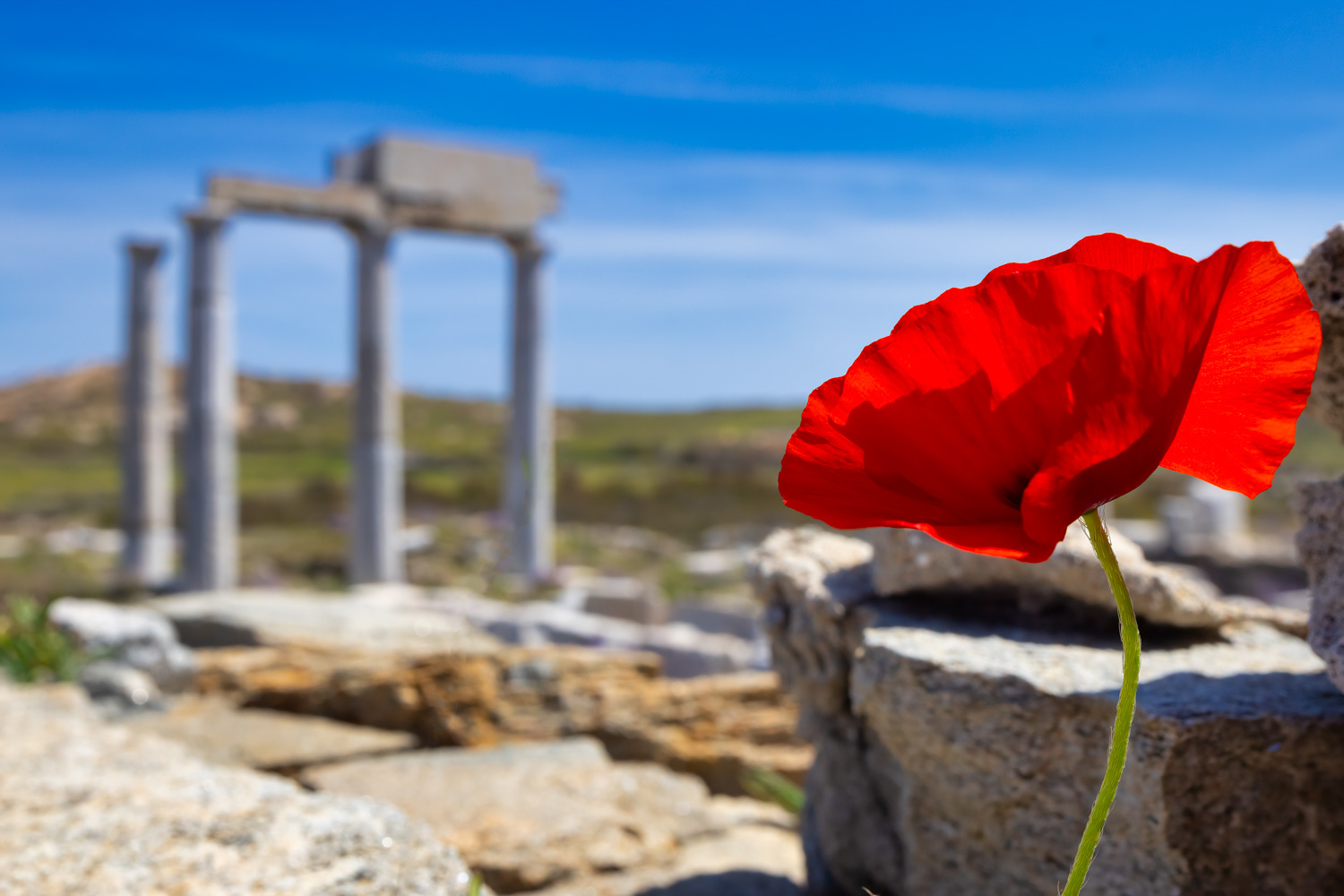
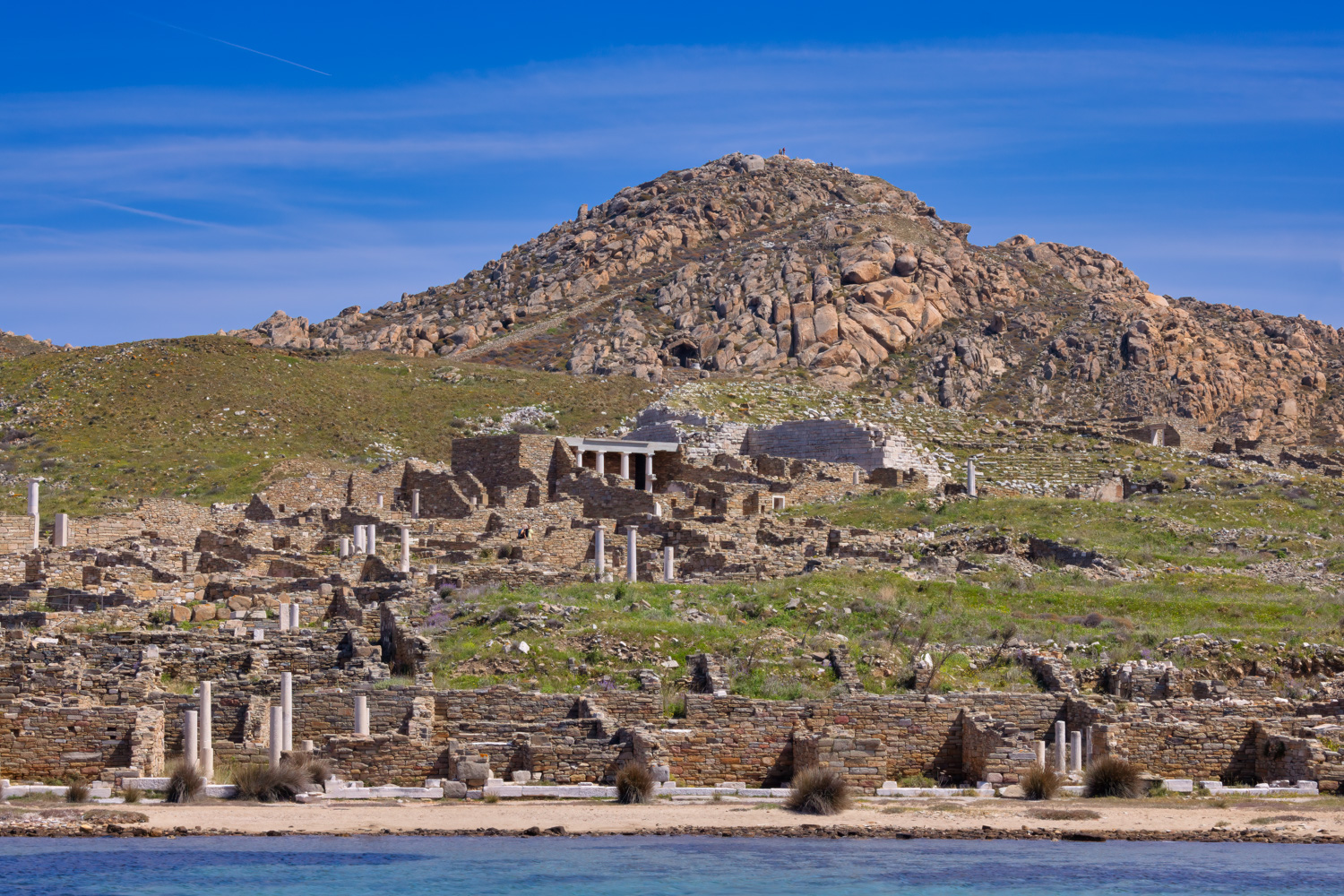
Approximate date of Pisistratos of Athens‘ decree that all graves within sight of the temple at Delos be dug up and moved.
The Persian admiral Datis stops at Delos to pay his respects and demonstrate to the Greeks that the Persians are not hostile to their gods.
The shared treasury of the Delian League is transferred from Delos to Athens.
Athens decrees that it is illegal to be born or die on Delos.
The satrap of Phrygia, Pharnakes, offers asylum in Adramytteion to exiles from Delos.
Delos regains control over their sanctuary and island following Athens‘ defeat in the Peloponnesian War.
Athens begins administering the sanctuary at Delos again.
Antigonos I Monophthalmos Declaration of Tyre grants autonomy to all Greek cities. While its effects weren’t the same everywhere, it allowed Delos to regain control of its Temple to Apollo from Athens.
Antigonos Monophthalmos creates the Koinon of the Nesiotes, the first federation of the Cyclades Islands, with Delos as its common sanctuary.
The Roman Senate gives Delos to Athens.
Mithridates VI‘s troops take Delos and ransack it.
Delos destroyed again by pirates under Athenodoros, an ally of Mithridates VI.
April 4
The author of this page and his wife visit the ruins of Delos.